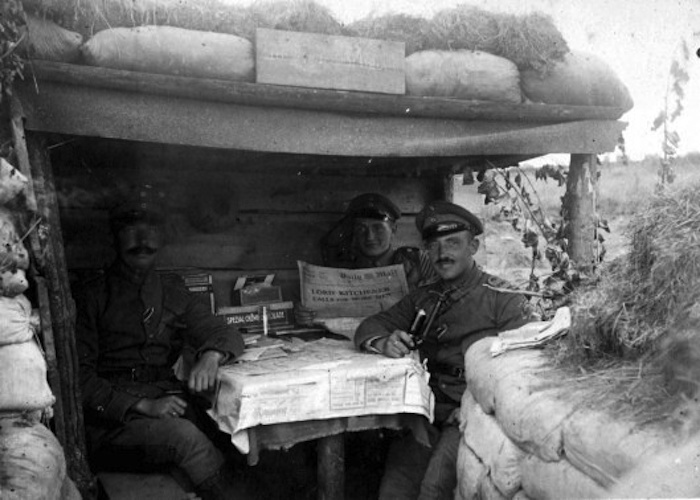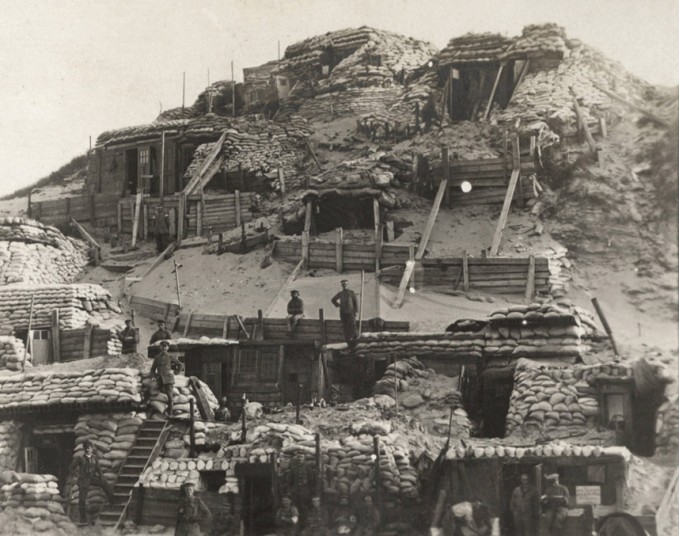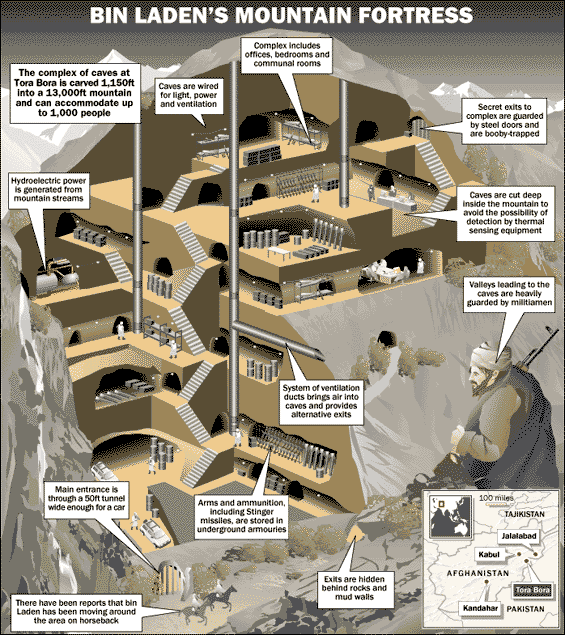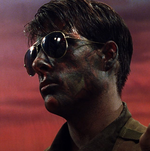|
Nenonen posted:But what if... you put the men on airplanes and landed them behind the lines??? Turns out the enemy will often shoot back. Damned unsporting of them, I know.
|
|
|
|

|
| # ? Jun 14, 2024 23:21 |
|
Louis Barthas has had many journal entries lamenting the fact that a 1-2km walk from their own reserve areas to the second line trenches took them 4-6 extremely stressful hours of blind marching in mud, trenches of mud that have turned into small rivers, extremely cold standing water, open-to-direct-enemy-fire plains, forests that turned out to be swamps, old mining town full of random holes and mine entrances, random spools of barbed wire shattered and scattered all over the bombed out husk of a road and seemingly random communication trenches of varying quality and in varying states of decay. This walk would be considered part of their "rest" period which otherwise had consisted of hard manual labor instead of silly things like "lying down and sleeping" or "getting food in you" or even more silly things like "getting replacement clothes when your winter clothing has been shredded to the point of looking more like a homemade bikini".
|
|
|
|
SerthVarnee posted:Louis Barthas has had many journal entries lamenting the fact that a 1-2km walk from their own reserve areas to the second line trenches took them 4-6 extremely stressful hours of blind marching in mud, trenches of mud that have turned into small rivers, extremely cold standing water, open-to-direct-enemy-fire plains, forests that turned out to be swamps, old mining town full of random holes and mine entrances, random spools of barbed wire shattered and scattered all over the bombed out husk of a road and seemingly random communication trenches of varying quality and in varying states of decay. 1-2 km in 4-6 hours?? that's for like a battalion walking, not with heavy equipment? did stuff like machine guns stay at the front or did each battalion have to carry them forward when they were cycled in? I read about certain connecting trenches and roads were shelled regularly, but how often were secondary trenches hit instead of the front? In terms of rotation, if a battalion/division was cycled on every 6 weeks or what the interval was, how many of say a battalion of 1000 men would be in their section of the front line compared to in secondary trenches/dugouts/sleeping/eating in between attacks and how wide was their front? I read that it was a pretty low number of guys keeping watch, something like 3-5 keeping watch on a 100m section during "downtime".
|
|
|
|
ilmucche posted:1-2 km in 4-6 hours?? that's for like a battalion walking, not with heavy equipment? Sometimes it was even shorter distances and it took much longer. "Walking" is doing alot of heavy lifting here, since we're talking half-starved men, with something around 2-6 hours of regularly interrupted daily sleep, plowing in a single man wide line through a trench that is currently flooded up to your chest and partially collapsed in many places, in the black of night, with barbed wire coils on both sides, having to sometimes stop in freezing water for 1 hour while another company passes through the crossing you've reached. quote:Louis Barthas posted: Later in the book, his squad is "entrusted" with a trench cannon, which they had to drag back and forth whenever the got relieved, except for one week where the section they relieved decided to just exchange cannons instead of dragging them around. They also had a couple of weeks with no wheels on their cannon because someone had stolen them before the cannon was assigned to Barthas' squad. They stole some later on though, so all was good. SerthVarnee fucked around with this message at 13:11 on Nov 17, 2022 |
|
|
|
quote:We finally reached the place where those who had gone before had such difficulties. The had left behind one unfortunate fellow whom they couldn't disengage. We made some vain efforts to pull him out, almost to the point of pulling his arms and legs out of their sockets. Seeing that we too were abandoning him, he begged us to put him out of his misery with a rifle shot. We promised that we would come back and get him in the morning, and we left him with a shovel so that he could try to save himself. was this dude just that stuck in the mud?
|
|
|
ilmucche posted:was this dude just that stuck in the mud? The combination of bombardment and the movement of huge numbers of men back and forth not only killed almost all forms of plant life, but pretty much shattered the soil on any WWI battlefield. Add water to that and you get a degree of mud that is almost unimaginable.
|
|
|
|
|
Hard part can be getting him out without getting yourself stuck in the process. And there is quite likely very very little room to go around him with possibly zero room to get around both of you. So while you are digging him out, the rest of the line behind you is stuck waiting and at risk of getting themselves entirely stuck.
|
|
|
|
Gnoman posted:The combination of bombardment and the movement of huge numbers of men back and forth not only killed almost all forms of plant life, but pretty much shattered the soil on any WWI battlefield. Add water to that and you get a degree of mud that is almost unimaginable. And also the French and British are disinclined to invest manpower into fixing up the trenches, because why fix up this one when next month's general offensive is going to move the line away from here.
|
|
|
PittTheElder posted:And also the French and British are disinclined to invest manpower into fixing up the trenches, because why fix up this one when next month's general offensive is going to move the line away from here.
|
|
|
|
|
PittTheElder posted:And also the French and British are disinclined to invest manpower into fixing up the trenches, because why fix up this one when next month's general offensive is going to move the line away from here. The British and the French were also stuck in some really unfavorable ground, partially due to pollical reasons. Once things settled in place the Germans did a fair bit of strategic withdrawing to put themselves on more advantageous terrain. Higher ground, ridges with actual rock under them, that kind of thing. This was good because put your defenses at a higher elevation and let you do clever things like have the rear trenches fire over the front trenches, but it also meant that drainage was much less of an issue. If you're on a hill or a ridge you can dig down a lot further before you find the water table. The Allies, meanwhile, found it politically unpalatable to give up yet more of northern france. In some areas this lead to them occupying some extremely low-lying territory with their trench networks, especially in the areas in NE France. IIRC the Ypres/Passchendaele part of the front was a pretty good example of this, with the British basically trying to dig ditches in a swamp.
|
|
|
|
Trin Tragula posted:The solution to this is both brilliant and hilarious: you send out tanks carrying giant fascines on the front. A fascine is a big old bundle of wood (yes, same root word); drive the tank up to a trench, untie the fascine, drop it down the trench, keep rolling through. More or less the same principle used by and against the Roman army in ancient Gaul, except with far fewer competent Italians. In the run-up to the 1st Gulf War we tested using AAVs to carry fascines on racks on the side of the vehicles to quickly fill trenches. The fascine itself was made out of bundles of PVC pipe held together with big cargo straps. As it is, the trenches weren't enough of an obstacle to worry about so they didn't use the system, but it was still interesting to see the old idea revived.
|
|
|
|
Cyrano4747 posted:The British and the French were also stuck in some really unfavorable ground, partially due to pollical reasons. Once things settled in place the Germans did a fair bit of strategic withdrawing to put themselves on more advantageous terrain. Higher ground, ridges with actual rock under them, that kind of thing. This was good because put your defenses at a higher elevation and let you do clever things like have the rear trenches fire over the front trenches, but it also meant that drainage was much less of an issue. If you're on a hill or a ridge you can dig down a lot further before you find the water table. there was a thing about guys slipping off the wooden planks in the trenches and disappearing into the mud. is there weight to the fact that the germans were also happy to pour concrete for their trenches because they were on captured ground where the brits/french didn't want to make permanent fortifications because that would seem like giving up?
|
|
|
|
By way of contrast, here are some officers of the Austro-Hungarian Honvéd Inf. Regt. No.309 in a trench somewhere near Sosnow (today called Sosniv) on the river Strypa in western Ukraine, photographed sometime in 1916:
|
|
|
|
Rascar Capac posted:By way of contrast, here are some officers of the Austro-Hungarian Honvéd Inf. Regt. No.309 in a trench somewhere near Sosnow (today called Sosniv) on the river Strypa in western Ukraine, photographed sometime in 1916: I swear, if I was a conscript ordered to build a nice terrace trench for officers, I would mutiny so hard.
|
|
|
|
Rascar Capac posted:By way of contrast, here are some officers of the Austro-Hungarian Honvéd Inf. Regt. No.309 in a trench somewhere near Sosnow (today called Sosniv) on the river Strypa in western Ukraine, photographed sometime in 1916: Is that a garden? Did the picture get taken just before they headed over to the sauna?
|
|
|
|
Is poilu worth picking up? How does the translation stack up compared to getting a copy in french?
|
|
|
|
ilmucche posted:Is poilu worth picking up? How does the translation stack up compared to getting a copy in french? I can't speak about the translation accuracy, but I got the ebook off of Amazon a while ago, and it is an excellent read.
|
|
|
|
ilmucche posted:Is poilu worth picking up? How does the translation stack up compared to getting a copy in french? It would absolutely help with your understanding of how WWI trench warfare worked for the men who fought it. If you speak fluent French you should read it in French, naturally. Otherwise, the translation is perfectly effective.
|
|
|
|
Cool. I'll see about picking up a copy as my wwi book for the year
|
|
|
|
That Louis Barthas quote I did earlier was directly taken from Poilu, so yes it is a very well written book, which has been very competently translated.
|
|
|
|
HannibalBarca posted:I quite liked Tim Blanning's biography wrong Frederick II
|
|
|
|
Rascar Capac posted:By way of contrast, here are some officers of the Austro-Hungarian Honvéd Inf. Regt. No.309 in a trench somewhere near Sosnow (today called Sosniv) on the river Strypa in western Ukraine, photographed sometime in 1916: There were quiet sectors of any front:   
|
|
|
|
The mud comes in extremes through the war and location/weather and terrain situation etc, the stuff that can drown alert men and horses that needed cordroy roads to handle is a pretty horrific example of Paschendale in the autumn of 1917 for example. Some of the British trenches in Belgium were in a constant war of attrition trying to pump out said water to deal with the mud but nature is both omnipresent and overwhelming and you can only spare so much time and engineers.
|
|
|
|
|
ilmucche posted:there was a thing about guys slipping off the wooden planks in the trenches and disappearing into the mud. is there weight to the fact that the germans were also happy to pour concrete for their trenches because they were on captured ground where the brits/french didn't want to make permanent fortifications because that would seem like giving up? This is often overstated; it fits with what we want to believe and what our cultural expectations often are. The most important point to make here is, by late 1917 and early 1918, both sides (the Germans much faster than the Entente powers) were moving away from defensive concepts based around simple hard trench lines to a more flexible strategy involving outposts, isolated shelters, and disguised machine-gun nests which were to be defended briefly as a tripwire and then given up when attacked, with the defenders falling back to (and moving up from the rear to) a "principal line of resistance" a few hundred yards behind the first positions. The new principal line of resistance was on all sides often deeper and wider than previous front-line trenches, and there would then be further outposts and trenchlets immediately behind it, further expanding the width of the zone to be defended. It is *generally* true that all things being equal, the Germans were more inclined to dig deeper and build more luxuriously because they were expecting to live in and defend their positions long-term. The French often institutionally neglected the value of a good-quality trench, but I would put it more down to a casually thoughtless attitude towards the needs of the men amongst French officers which was best encapsulated by GM Trevelyan's famous observation "if the French nobility had been capable of playing cricket with their peasants, their chateaux would never have been burnt". BEF attitudes generally followed a middle course; while there may be no sense building ourselves a luxury hotel because the Big Push will eventually come and then we'll move on, then in the meantime any idiot can be uncomfortable, and we might as well put a reasonable amount of effort into digging ourselves a decent 'ole so we don't die while we wait. Cyrano4747 posted:The Allies, meanwhile, found it politically unpalatable to give up yet more of northern france. In some areas this lead to them occupying some extremely low-lying territory with their trench networks, especially in the areas in NE France. What people always forget on this point is that *if you're going to attack*, it absolutely makes far more tactical sense to shove up close to the enemy than it does to sit back away from them. When the Big Push finally comes, above all you want to minimise the time your attackers have to spend crossing No Man's Land. Massacre stories usually start by saying something like "we had to advance across 500 yards of open ground..." The sweet spot is about 100-75 yards away. This puts you close enough that the enemy's going to think twice before trying to shell your front trench (because now you're getting into the margin of error of the average field gun), close enough that you can sap jumping-off trenches right forward before zero hour, but not so close to invite little fights and skirmishes and bombing duels to break out. quote:IIRC the Ypres/Passchendaele part of the front was a pretty good example of this, with the British basically trying to dig ditches in a swamp. Where the water table was highest, both sides got wood and earth and built breastworks up from the surface.
|
|
|
|
Cessna posted:There were quiet sectors of any front: French, German(???), British?
|
|
|
|
That bottom one is German.
|
|
|
|
distortion park posted:French, German(???), British? the middle one looks roman
|
|
|
|
Cyrano4747 posted:That bottom one is German. And the guy's reading the Daily Mail.
|
|
|
|
What moron poses for a trench photo without anyone wearing your sides trademark hat? French luxury trench wins.
|
|
|
|
Middle one is also French.
|
|
|
|
|
Epicurius posted:And the guy's reading the Daily Mail. I thought WWI was too early for fascism?
|
|
|
|
SeanBeansShako posted:Middle one is also French. https://www.messynessychic.com/2015/11/24/the-art-of-homemaking-in-a-world-war-dugout/ Above: A French WWI dugout called “The Chalet” (c) Denise Follveider/Reuters leads to https://www.businessinsider.com/unpublished-photos-of-world-war-one-2014-5?IR=T
|
|
|
|
 "A German observation post on the Yser Front in Belgium in 1917 (c) REUTERS/Archive of Modern Conflict London"
|
|
|
|
samcarsten posted:I thought WWI was too early for fascism? 
|
|
|
|
samcarsten posted:I thought WWI was too early for fascism? Depends on if you count Action Francais as the first fascists or last protofascists.
|
|
|
|
Jobbo_Fett posted:

|
|
|
|
I have a question about WWII and how the allied militaries tried to counter the perceived superiority of German small arms and tactics. This is from a conversation I once had with my father about Basil Liddle-Hart and his influence on various things. My dad said that the book he was reading suggested that the allied response, given that, for example, the Sten was so obviously inferior to the MP40, was to make sure that the guy with the Sten had 8 magazines to the German 4. Basically they didn't have time to produce a better SMG, but they had the manufacturing capability to produce a huge number of rounds for the SMG they had. Does anyone have any idea what book he was reading? It was probably published before 2000/05.
|
|
|
|
yaffle posted:I have a question about WWII and how the allied militaries tried to counter the perceived superiority of German small arms and tactics. This is from a conversation I once had with my father about Basil Liddle-Hart and his influence on various things. My dad said that the book he was reading suggested that the allied response, given that, for example, the Sten was so obviously inferior to the MP40, was to make sure that the guy with the Sten had 8 magazines to the German 4. Basically they didn't have time to produce a better SMG, but they had the manufacturing capability to produce a huge number of rounds for the SMG they had. Does anyone have any idea what book he was reading? It was probably published before 2000/05. That seems extremely doubtful. The sten was produced and issued vastly more often than the MP40, and given where both were used there doesn't really seem like there would be any practical situation where people would be comparing one to the other and feeling jealous. (The MP40 would be more likely facing off against the Soviets in urban combat, and in that case it was the Germans who felt their weapons were relatively inadequate) I also don't really see the MP40 as being better in any clear way. I imagine it's more likely sten users might be jealous of the Thompson - the Germans spoke highly of it too. Edit: the only contemporary comparison of the sten and the MP40 I can find is from Otto Skorzeny who said he liked the sten better... Fangz fucked around with this message at 12:38 on Nov 19, 2022 |
|
|
|
samcarsten posted:I thought WWI was too early for fascism? My friend, meet Horatio Bottomley, a man who would happily have replaced Parliament with a hyper-nationalist hyper-corporatist dictatorship if it meant selling another thousand copies of John Bull. He even had his own birth certificate drama with Ramsay MacDonald...
|
|
|
|

|
| # ? Jun 14, 2024 23:21 |
|
yaffle posted:I have a question about WWII and how the allied militaries tried to counter the perceived superiority of German small arms and tactics. This is from a conversation I once had with my father about Basil Liddle-Hart and his influence on various things. My dad said that the book he was reading suggested that the allied response, given that, for example, the Sten was so obviously inferior to the MP40, was to make sure that the guy with the Sten had 8 magazines to the German 4. Basically they didn't have time to produce a better SMG, but they had the manufacturing capability to produce a huge number of rounds for the SMG they had. Does anyone have any idea what book he was reading? It was probably published before 2000/05. germans didn't use smgs in large numbers, and it wasn't an important part of squads' firepower german mgs otoh formed most of the squads' firepower and were superior to allied squads' support weapons an interesting question would be if german mgs affected allied tactics but anyway at the end of the day, ww2 infantry weapons didn't decide the war's outcome, and they weren't as important as gamers think
|
|
|













 Yes, it's like a lava lamp.
Yes, it's like a lava lamp.































